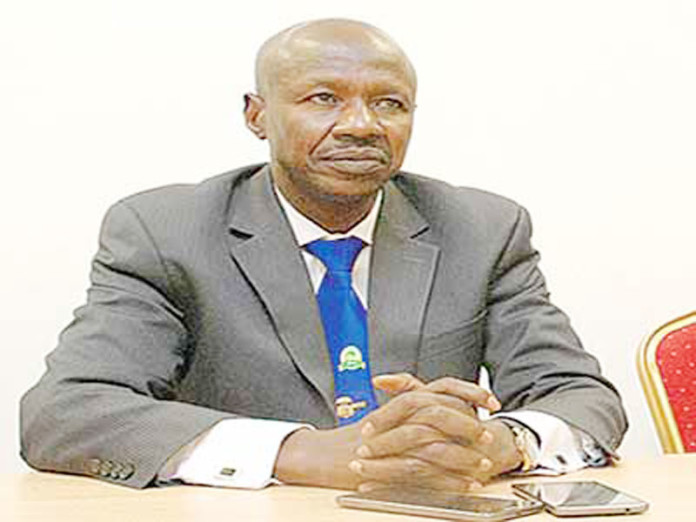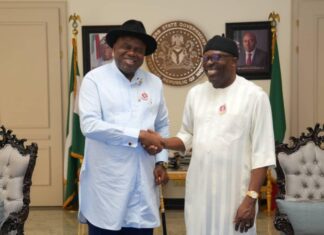Suddenly, the much-desired anti-corruption war to clean up the filthy levels of graft polluting the entire system is sliding inexorably towards dictatorship. Even the arrowhead of the war, the Economic and Financial Crimes Commission (EFCC) is once again making exhibition of its power of arrest, detention, arraignment and… bail. The conviction and retrieval of looted public funds are still lacking. Mrs Farida Waziri had stepped into the arena with discreet, purposeful and result-oriented combat at the helms. Ibrahim Lamorde followed in her footsteps. Maybe Ibrahim Magu will also take a cue from them.
Nobody needs further justification for the indispensability of the anti-graft war. Every informed Nigerian has seen the corrosive influence of gross abuse of public office by corrupt officials on public institutions like the judiciary which allowed convicts to evade retributive justice. For instance, John Yakubu Yusuf, a former director in the Federal Civil Service, got a two-year jail term, with N250,000 fine “handshake” after he was convicted for embezzling N2 billion police pension fund. Similarly, in 2008, EFCC convicted ex-governor Lucky Igbinedion for looting N25bn from the state treasury during his tenure. He was sentenced to six months in jail or the option of N3.5 million fine and to refund N500 million and forfeit three houses; all but one of 191-count charges were dropped, a plea bargain deal which revolted the whole nation.
Hence the need and justification for the war against corruption – no matter how hard and fierce corruption fights back. The war must be fought successfully to restore truth, honesty, integrity and above all, institutional trust in public offices and officials who occupy them.
But in a democracy, it must be fought with the rule of law as the abiding, inviolable principle.
Like other compatriots, President Muhammadu Buhari suspected that corruption in the judiciary, like all other public institutions, is the frustrating source of endless adjournments and interlocutory injunctions which lead to endless trials of suspects and hardly few convictions.
On the contrary, the Chief Justice of Nigeria Mahmud Mohammed blamed ineffective government prosecutors for the delay in trials: He listed shoddy investigations, incompetent prosecutions induced by lack of political will by the executive arm of government to prosecute high profile persons who are cronies in their political parties and public officeholders.
Indeed, we expect collaboration of all the three arms of government rather than the blame game which merely ends in a stalemate. Thus, we expect timely, judicious and diligent prosecution by cerebral prosecutors with the Judiciary helping the executive by meteing out adequate punishment for the crime committed for the society to see that justice is done.
Should EFCC and the other anti-graft agencies take their cues from the demands of rule of law in a democracy, they would minimize the altercation between the executive and the judiciary, with the legislature updating laws with appropriate punishments in line with the separation of power among the three arms of government.
But no. Rather, we see more of executive interference in the judiciary, as if to teach the judges how to do their professional calling as one source of friction. In other words, the separation of powers implies that when a court gives order, all must obey without exception, unless a party decides to apply to an appellate court. Moreover, the presumption of innocence of a suspect till proved guilty in court imposes a duty on the executive prosecutors to convince the court beyond reasonable doubt. Until the court gives its verdict, all suspects are free.
Hence the emphasis on thorough investigation of cases before arrest, diligent prosecution for a complementary clear judgement.
Instead, we see a recrudescence of the anti-graft war sliding back into media circus. EFCC arrests suspects, accuses them of humongous sums they stole, procure illegal magistrate’s warrant to hold a high court criminal suspect, and hold him on an archaic holden charge before investigations beyond the 48 hours habeas corpus prescribed to charge him in court.
The agency then fishes for huge number of counts charges, none of which its prosecutors can prove in court, never mind beyond reasonable doubt. It ends up infuriating rights activists and inducing street protests when perhaps two or three counts could be proved in court to convict suspects and retrieve the stolen loot for the treasury.
The arrest and continued detention of Chief Olisa Metuh, the vocal, loud, sometimes downright irreverent spokesman of the leading opposition Peoples Democratic Party (PDP) has cathartically squelched the criticisms against the war. On the other hand, such criticisms have made way for those praising it, predictably sounding no less louder than the critics they supplanted.
PDP’s legally “correct” stance not to get involved with the defence of any of its top executives accused of graft is wise. But politically, it is an obtuse decision. For, PDP is the only strong countermand to the ruling All Progressives Congress (APC) government. It is the only party with the clout to call the ruling government to order if the latter goes astray.
By the silence of PDP and its vocal spokesman, the expressway is being paved for dictatorship to get its toehold in the system. The defections by its members in droves into APC merely accelerate the process. Dictatorships all over the world thrive when enlightened democrats fail to speak out to correct dictators when they go astray.
As the eternal vigilance reminder of a popular Jewish saying has it, if they come to pick A in the morning and nobody speaks out, they will be emboldened to come back for B in the afternoon. If nobody still talks, by midnight, all their targets will be gone.
Having been in power for 16 years during an era when crude oil prices were as high as $140 per barrel, and left with a near-bankrupt economy to show as legacy, PDP has every reason to believe that the anti-graft agencies have beamed their radar on its leaders. Not intentionally to decimate the party, but to recoup the self-enrichment loot from the public treasury. That is why the party needs its vocal spokesman to say it as it is and give all its suspects equal opportunity for justice after free and fair trial by a competent court.
Nobody fights anti-corruption war anywhere in the world without trampling on big toes. Loud accusations of witch-hunting, and even biased targeting of suspects must be cooed to the leadership to make them cut the excesses of the anti-graft warriors.
That is Metuh’s specialty. Whoever succeeds him must make sure he plays the role with equal efficiency and effectiveness: The desirable anti-corruption war must not degenerate into dictatorship.

















